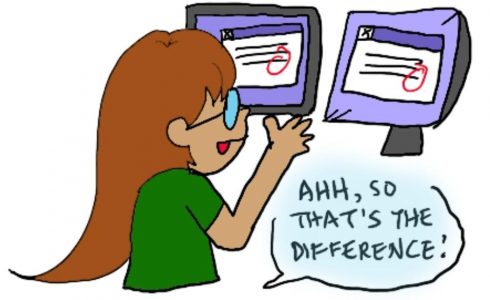
One of the smaller projects I had was comparing and red-lining the EBSCO license agreements from two different consortia: the BC Electronic Library Network [BC ELN] and Council of Prairie and Pacific University Libraries [COPPUL]. As EBSCO is a prominent vendor for BC ELN, it was extremely interesting to be able to look at how these agreements were structure, and how they might differ between two consortia.
As I have a high interest in a career as an academic librarian, it is important to me to explore the various ways academic libraries obtain and maintain their many resources. This project exposed me to controlled vocabulary used in the license agreement, what features are covered by fees, and stakeholders that I had not previously considered would be pertinent to such an agreement, such as ‘walk-in users’, or those unaffiliated with the institution who may use the service. I also learned about the licensor’s responsibilities and what might serve as grounds for termination of the agreement.
This was my first red-lining experience as well, and I learned how to employ the MS Word Review ‘compare documents’ function and how to tailor it to my needs. For example, comparing two documents automatically selects markup options such as insertions, deletions, and formatting. These options can be shut off under the ‘Tracking’ tab. This function I found very useful in two other document comparison mini projects I was assigned. I also predict what I’ve learned will be useful in future projects involving any document revisions. I discussed this with one of my project managers for a different project, and they realized that this would be useful for anyone in the office who finds that they have had their documents duplicated in our Master File (a cloud storage system at SFU) when the system has synced incorrectly. In a future team meeting, I will be presenting how to use this function to other staff members.

Image from Flickr licensed under CC
Aside from the EBSCO license agreements, I also reviewed documents for Feature Film Public Performance Rights (FFPPR): Criterion and AudioCine. Both agreements were very dated and rewritten by a contractor at BC ELN to bring them closer in line with the consortium's master license, as well as to update the language.
Both were sent off to vendors for review but as often is the case, received no response despite several attempts at correspondence. My redlining project was sent to vendors in hopes that the improved accessibility would encourage more engagement.
Through these projects, I was able to examine several different license agreements, the vocabulary and language used, how they can be structured, and how they might change over time.
